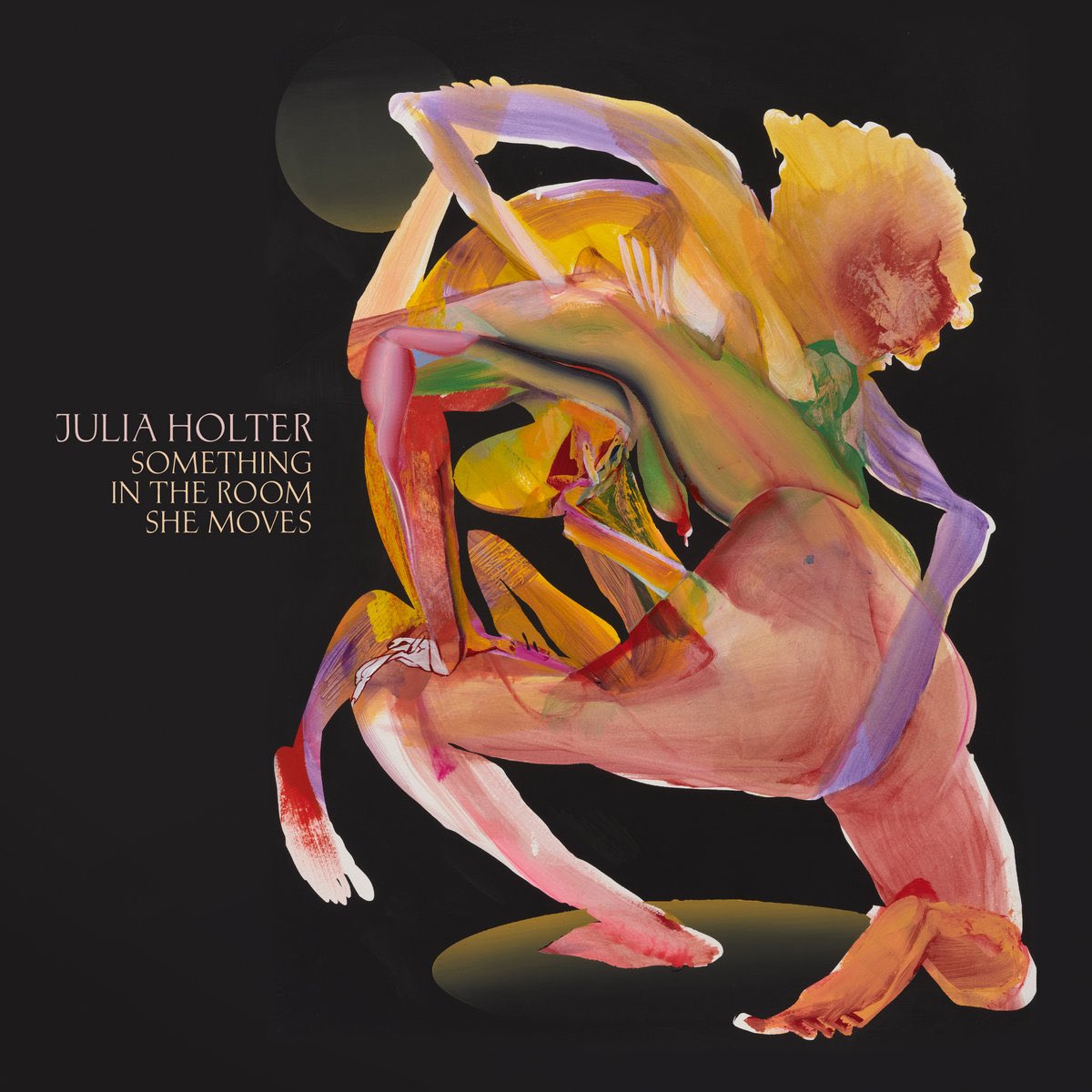Julia Holter
Something in the Room She Moves
DOMINO
ABOVE THE CURRENT
Julia Holter has described her new album as a document of sorts; one that captures the way love can “re-route neural pathways.” Despite its complexities, the threat of heartbreak, the vulnerability it takes to become subsumed by it, love has a way of persevering, of thriving in the most inhospitable of circumstances. It’s helpful to listen to Something in the Room She Moves from this perspective, as there’s a flow to it that reflects the highs and lows of the human experience.
There’s a heaviness that brings the album’s airy synths in conversation with the bubbling low-end, a drag that’s almost imperceptible but keeps Something floating on an even keel. The title is a loose variation on The Beatles’ “Something in the way she moves” lyric, but here, the woman is the actor—she calls the shots. It’s a perfect summation of Julia Holter’s pop experiments, ones that recall a history fondly remembered but not easily identifiable. Each time she conjures up a moment of glimmering joy, there’s an equally contemplative counterbalance. Something in the Room is a display of ecstasy, but these grand moments can also be dissolved and sifted to reveal something far more complex.
Take the album’s center, the whimsical “Spinning,” a repetitious yet delightful space-pop jam built around syncopated rhythmic hits and a bevy of synth melodies that gently float across the landscape. Holter’s voice moves from a low-register near-whisper to near-falsetto, and a bassline in the second half emerges to introduce the album’s technicolor core: “What is delicious? / And what is omniscient? / And what is the circular magic I’m visiting? / What is appropriate? / What is so yummy?,” she asks. Shortly after, “I’m in the precious belonging of day.” It sounds like what Stravinsky might come up with if he was raised on Animal Collective and given a heaping dose of acid, which is another way of saying that this is a peerless, singular song. It’s optimistic—or, at the very least, the emergence of shimmering melodies suggest a victory over the track’s early hesitations.
It’s an important and quickly noticeable decision that Holter moves from this to the almost-ambient, all-instrumental synth experiment on “Ocean.” The track is built around a few sturdy synth chords that occasionally give way to eerie intruders. Low end, subterranean bass wobbles and churns. The lead melody gets swallowed by strings until the fight is over. There’s something suggestive in the way Holter manipulates emotions using a near constant exchange of uplifting and downcast ideas.
The following track, “Evening Mood,” sounds like 23rd century lounge jazz before Holter comes cannonballing back to Earth, singing devotedly over cinematic chords. This is an album of love and death, as Holter spent the past few years celebrating the birth of her daughter—experiencing an entirely new kind of love—and mourning the loss of loved ones, some of whom departed far too young. Julia Holter’s ability to synthesize these dueling feelings into a completely organic and original lexicon should be surprising, but the artist has always operated on a plane that’s accessible by so very few.







